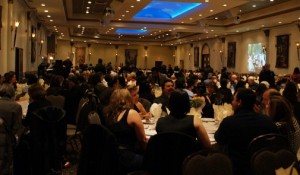
After 10 years of tireless efforts on behalf of Spanish-speaking seniors in the GTA, this past Friday the Association for Spanish-speaking Seniors of the GTA (ASHTOR) held their first ever major fundraising event, the 1st Annual Gala “Aging with Dignity: A Night for the Future”, in order to raise funds for the many programs this important organization has in place, and to get just one step closer to the dream of finally providing a long term residence for Hispanic seniors. This is a massive undertaking and ASHTOR, partnering along with Hispanic Future Care, are working together towards planting the seed and taking the first step, with an initial goal of getting a dedicated space for Spanish-speaking Seniors in one of the 10 municipal long term care residences.
Lea la Versión en Español al pie de la Página.
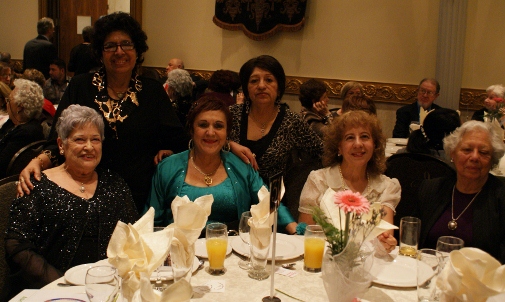
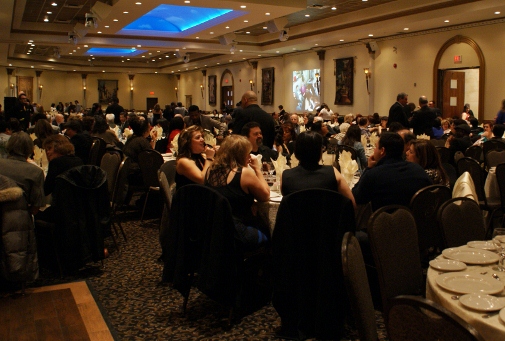
Nora Stalker, current president of ASHTOR, talked to Alma Latina about this successful event and the many achievements they have reached since its inception a decade ago. “ASHTOR has been working for a long time on behalf of older adults. We never imagined that this event would be so successful,” she said.
The Gala took place at the Julius Banquet Centre and it was the first joint fundraising effort of ASHTOR and their newly established ad-hoc committee, Hispanic Future Care. Judging by the packed house that night, the event was an absolute success. This was an opportunity for them to bring the community together and recognize the efforts of their many volunteers, while continuing to advocate for the needs of Spanish-speaking seniors. ASHTOR is creating training programs and social activities, while sharing resources and information with other organizations tending to the well-being of the large Hispanic senior community in the GTA, while Hispanic Future Care creates awareness for the need of a culturally sensitive Long Term Home Care. This project will not take place overnight. It is a long process that may take years of negotiations, planning and more for it to become a reality. But it must start somewhere, says Alejandro Morales, current president of Hispanic Future Care, who is a former social worker with 30 years of experience and former ASHTOR president as well.
He explains how Dr. Luis Fornazzari, a Canadian neurologist who treats loss of memory, Alzheimer’s and dementia, discovered that many Hispanic older adults can’t fend for themselves anymore and were in need of a long term care facility where they could obtain the personal care their own children can’t provide anymore because of they are employed full time. These seniors can’t stay home alone. Morales says that “we need to raise awareness within the Hispanic community that sooner or later they will have to place their elders in a long term care facility. The fundamental issue is to provide them with a culturally sensitive facility because the majority of these seniors don’t speak English because they never learned the language, be it because they arrived in Canada late in their lives, or they came here to babysit their grandchildren and a great majority of them feel totally abandoned.”
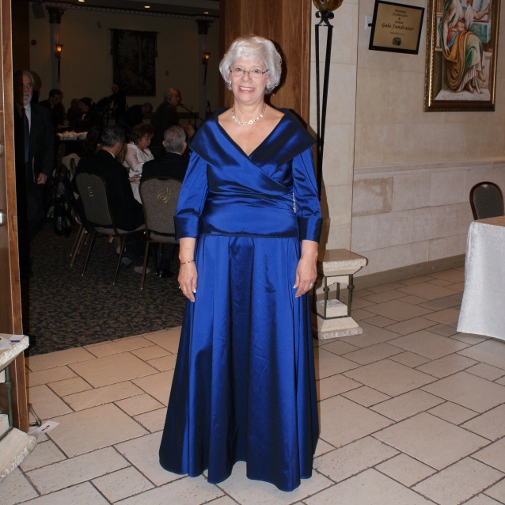
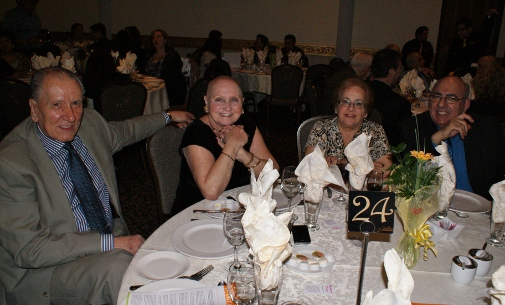
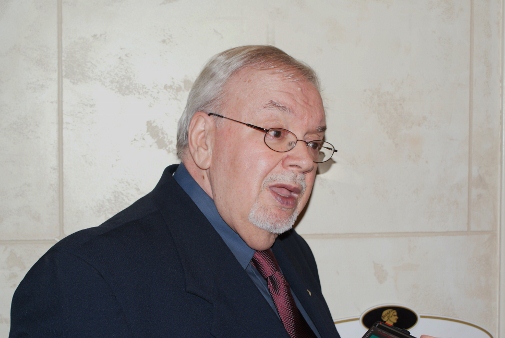
That is the other purpose of this Gala, says Morales, to try to make the Hispanic community aware of the needs of our seniors and to realize that we will all get to this point in life. “This is not just an issue for seniors, but it is an issue for all of our community. We have to be realistic: having a seniors residence exclusively for Hispanic seniors will take millions of dollars. We at least have to start like the Chinese proverb says, ‘A journey of 20,000 miles begins with one single step,’ and this Gala is just that first step. We’ve done a lot in 10 years. It takes patience, but we will get there.”
Some time ago, Fornazzari got the support of a significant number of consuls of Spanish-speaking countries, all marched together to the municipality and managed to obtain the support of then Mayor David Miller to facilitate access to the municipal system, being able to secure a space with 2 or 3 beds in one of the residences. This is only a first initial step, says Morales. But they want to have 20 or more beds and then go from there. There’s already a waiting list of about 30 Spanish-speaking seniors who want and need to be admitted to these long-term care facilities.
They have also identified an urgent need for an adult daycare facility, a place where Hispanic seniors can spend some time doing recreational activities and in turn give a few hours of respite to their primary caregivers, a type of facility I’m actually very familiar with because my first office job as a university student was as secretary of a day program for older adults.
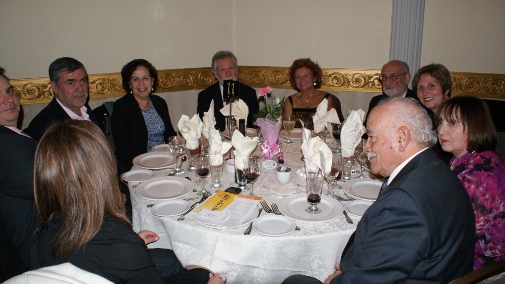
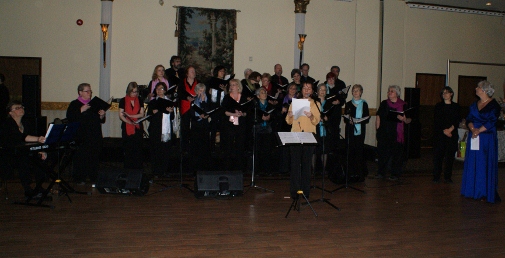
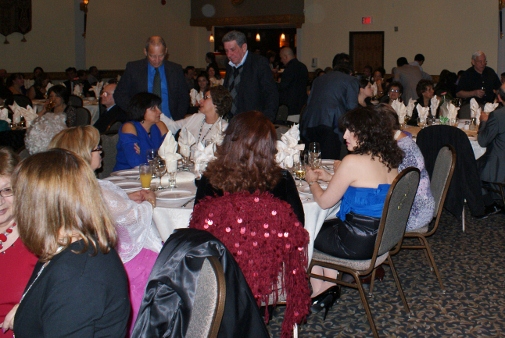
While working there, I met Lolita, a sweet elderly lady from Spain who suffered from Alzheimer’s and was in the later stages of the disease when we met. In her mind, she was a young girl growing up in her native Spain and she would speak Spanish to everyone she talked to. It was just by sheer coincidence that I was there and Lolita finally had someone at the centre who she could talk to and understood what she was saying. There are many, many elderly people who are not so lucky, and have to rely on the little language skills they may have (if any) to get by. ASHTOR and Hispanic Future Care are trying to also find ways to have a core group of Spanish-speaking volunteers to send them off to the five centres they know have Spanish-speaking older adults and who are in dire need of the service. They already received a grant from the municipal government for the purpose of training this group, but the financial support has stopped there.
The dream of ASHTOR and Hispanic Future Care is for every elderly person to have access to a permanent facility, where there’s a support system in place with volunteers or even paid staff (nurses, doctors, personal care workers, etc) that they can communicate with in their native language– maybe even have the kinds of traditional meals they are familiar with and to ultimately make them feel as comfortable and at home as possible.
But that dream has to start somewhere, and after 10 years of hard work, the success of their 1st Annual Gala, hopefully the first of many to come, says that the community is in fact responding positively and are becoming aware of the growing needs the senior Hispanic population faces. “Hispanic seniors are voiceless: they speak but nobody’s listening, nobody’s paying attention to what their needs are, what upsets them, what are their hopes and dreams,” says Nora. “This is one of the things that we, as an organization, pay particular attention to because our ultimate goal is for our seniors to have a dignified life. That’s our motto: dignity for our seniors.”
How can the Hispanic community at large help? “Responding the way they did today,” says Nora. “This has been a very pleasant surprise for us, not just to be able to raise the funds that we need, but also because we’re letting them know who we are and that our needs are and for us to work together. There is also a need to educate the families of the older adults.” These are not the parents they knew, she explains, who could be counted on to help them out in times of need. On the contrary, they now need the support and affection of their families to understand the growing needs that they face today.
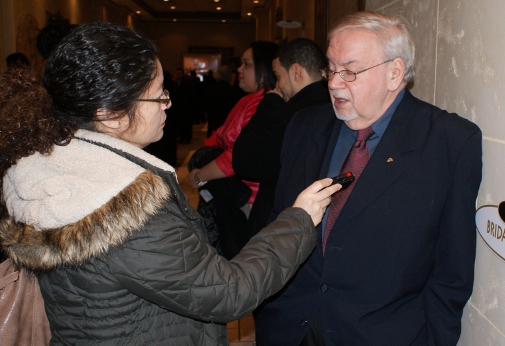
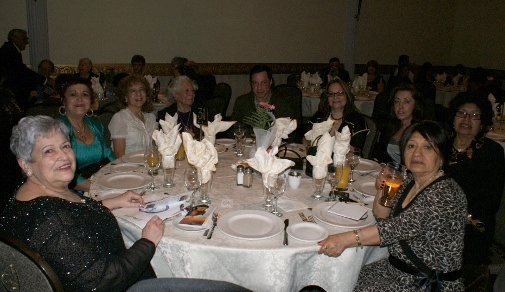
_______________________
1ra Gala Anual de ASHTOR:
Envejecer con Dignidad,
Una Noche para el Futuro
Después de 10 años de incansable labor a beneficio de los seniors de habla hispana en el GTA, este pasado Viernes la Asociación de Seniors de Habla Hispana del Gran Toronto (ASHTOR) sostuvo su primer evento a gran escala, su 1ra Gala Anual “Envejecer con Dignidad: Una Noche para el Futuro”, con el objetivo de recaudar fondos para los importantes programas que esta organización lleva a cabo, y para asi tambien acercarse un poco más al sueño de proveer a nuestros seniors hispanos con un centro de cuidado a largo plazo. Este es un proyecto enorme que ASHTOR planea en conjunto con Hispanic Future Care, plantando primero la semilla y tomando el primer paso, con la meta inicial de conseguir un espacio dedicado exclusivamente para seniors hispanos en una de las 10 casas de retiro que tiene la municipalidad de Toronto.
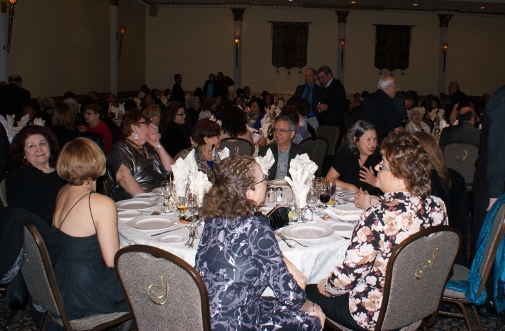
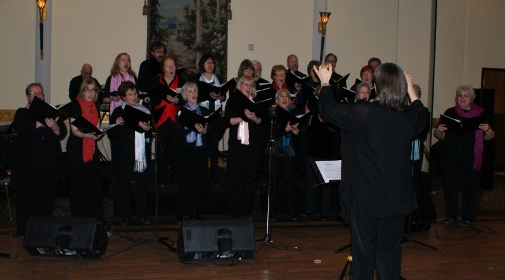
Nora Stalker, actual presidenta de ASHTOR, conversó con Alma Latina sobre este exitoso evento y sobre los muchos logros que han alcanzado desde sus inicios hace más de una década. “ASHTOR ha trabajado ya por mucho tiempo apoyando a los seniors hispanos. Nunca nos imaginamos que este evento tendría tanto éxito,” nos dice.
La Gala tuvo lugar en el Julius Banquet Centre y fue el primer esfuerzo conjunto de ASHTOR y su recién establecido comité ad-hoc, Hispanic Future Care (Cuidado Futuro para Hispanos). A juzgar por la cantidad de gente que llegó esa noche, el evento fue sin duda un éxito total. Fue una oportunidad de juntar a la comunidad y reconocer los esfuerzos de sus muchos voluntarios, y al mismo tiempo continuar abogando por las necesidades de nuestros adultos mayores. ASHTOR crea programas de capacitación asi como actividades sociales, y al mismo tiempo comparte recursos e información con otras organizaciones, ocupándose a su vez del cuidado de nuestra comunidad de adultos mayores. Hispanic Future Care, por su parte, se da a la labor de despertar conciencia sobre la necesidad de crear un espacio de cuidado a largo plazo que sea culturalmente sensitivo para nuestros seniors, cosa que no ocurrirá de la noche a la mañana. Será un proceso largo que puede llevarse años en negociaciones, planeamiento y más para que llegue a ser realidad. Pero por algo hay que empezar, nos dice Alejandro Morales, actual presidente de Hispanic Future Care, quien es un trabajador social retirado con más de 30 años de experiencia y quien fuera a su vez presidente de ASHTOR en sus inicios.
Nos explica como el Dr. Luis Fornazzari, un neurólogo canadiense quien se especializa en casos de pérdida de la memoria, Alzheimer y demencia, descubrió que hay muchos adultos mayores de habla hispana que ya no se pueden valer por si mismos y que necesitaban cuidado a largo plazo, donde puedan obtener los cuidados que sus hijos ya no pueden brindarles porque todos trabajan. Estas personas mayores ya no pueden estar solos. Morales nos dice que es necesario “concientizar a la comunidad hispana que tarde ó temprano van a tener que tener a sus adultos mayores en una residencia a largo plazo. El problema fundamental es ponerlos a todos en un lugar que sea culturalmente sensitivo. La mayoría de los adultos mayores de habla hispana no hablan inglés porque llegaron tarde en sus vidas, no fueron a la escuela y muchos de ellos vinieron a cuidar nietos y muchos se sienten terriblemente abandonados.”
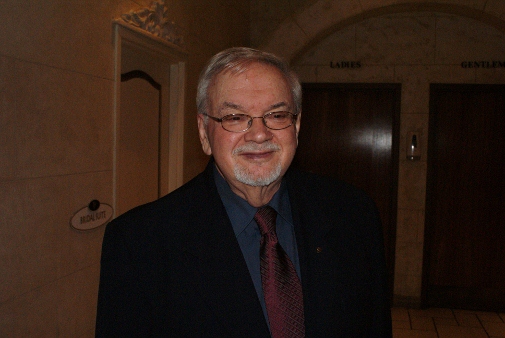
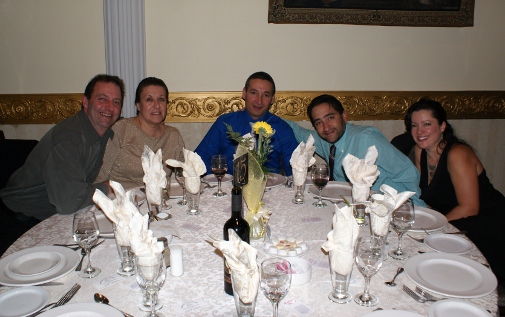
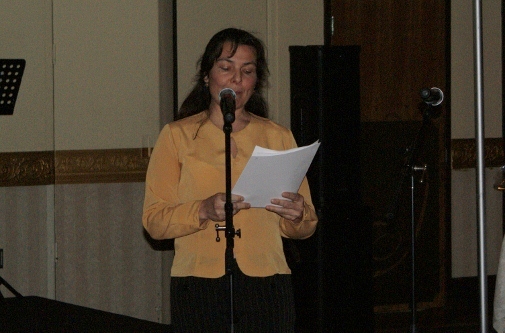
Este es el otro propósito de esta Gala, dice Morales, tratar de hacer a la comunidad comprender las necesidades de nuestros adultos mayores y que todos llegaremos a este punto en nuestras propias vidas. “Este no es solo un asulto de seniors, sino de toda la comunidad. Debemos ser realistas: tener una residencia de adultos mayores exclusiva para seniors hispanos se llevará millones de dólares, pero tenemos que empezar como dice el proverbio Chino, ‘Un viaje de 20,000 millas empieza con un solo paso,’ y esta Gala es el primer paso. Hemos hecho bastante en 10 años. Toma paciencia pero llegaremos.”
Hace algún tiempo, Fornazzari obtuvo el apoyo de un número importante de cónsules de habla hispana. Todos juntos marcharon a la municipalidad y lograron que el entonces Alcalde David Miller les facilitara el acceso al sistema municipal, garantizando un espacio con dos o tres camas en una de las residencias. Este es tan solo el paso inicial, dice Morales. El plan es obtener 20 o 30 camas y empezar desde alli. Hoy en día tienen una lista de casi 30 adultos mayores de habla hispana que necesitan ser admitidos a uno de estos centros de cuidado a largo plazo.
Han identificado tambien la necesidad urgente de un centro de cuidado para adultos, un lugar donde nuestros seniors hispanos puedan pasar el día haciendo actividades de recreación para darle unas pocas horas de descanso a las personas que cuidan de ellos– un centro con el que yo misma estoy bastante familiarizada por haber trabajado en uno de ellos como secretaria cuando estudiaba en la universidad.
Cuando trabajé alli conocí a Lolita, una dulce dama española que sufría de Alzheimer’s y se encontraba en las últimas etapas de la enfermedad cuando la conocí. En su mente, ella era una adolescente que vivía todavía en su España natal, y conversaba en Español con cualquier persona que se topara con ella. Fue pura coincidencia que yo estuviera alli, y Lolita finalmente tenía a alguien con quien conversar que pudiera entender sus historias. Desafortunadamente hay muchísimas personas que no tienen la suerte que tuvo ella, y tienen que depender de las pocas habilidades con el idioma inglés con las que cuentan– si es que saben algo del idioma. ASHTOR y Hispanic Future Care buscan entonces tener un grupo establecido de voluntarios a quienes puedan mandar a cinco de los centros donde han identificado seniors de habla hispana quienes requieren de sus servicios. Recibieron ya una subvención financiera del gobierno para entrenar a este grupo, pero la ayuda se detuvo alli.
El sueño de ASHTOR y Hispanic Future Care es que cada uno de nuestros seniors hispanos tenga la facilidad de tener acceso a un centro permanente de cuidado, si es que asi lo requieren, donde exista un sistema de apoyo con voluntarios e incluso personal capacitado que sean empleados de este centro (doctores, enfermeras, trabajadores de cuidado personal, etc) con quienes puedan comunicarse en su lengua materna e incluso donde puedan comer los tipos de comida tradicional a las que están acostumbrados, con el fin de hacerlos sentir tan cómodos como si estuvieran en sus propias casas.
Ese sueño debe empezar en alguna parte, y después de 10 años de ardua labor, el éxito de su primera Gala anual– y ojalá sea esta la primera de muchas– les deja saber que la comunidad hispana si está respondiendo de forma positiva y van comprendiendo la creciente necesidad que la población de adultos mayores de habla hispana enfrenta. “Los seniors hispanos no tienen voz: hablan pero nadie los escucha, nadie está poniéndoles atención para saber cuales son sus necesidades, que los angustia, cuales son sus sueños y esperanzas,” dice Nora. “Esa es una de las cosas que nosotros como organización debemos prestar atención porque ultimadamente la meta de nuestros seniors es tener una vida digna. Ese es nuestro motto: dignidad para nuestros adultos mayores.”
Y como puede ayudar la comunidad hispana? “Respondiendo de la manera que lo hicieron hoy,” dice Nora. “Esta ha sido una grata sorpresa para nosotros, no solamente para recaudar los fondos que necesitamos, pero tambien para dejarles saber quienes somos y cuales son nuestras necesidades y para que todos trabajemos juntos. Está tambien la necesidad de educar a las familias de nuestros adultos mayores.” Estos no son ya los padres que conocimos, nos explica, que pueden sacar de apuros a sus hijos cuando estos lo necesitan. Al contrario, son ellos quienes ahora necesitan del apoyo y afecto de sus familiares para que conozcan y comprendan las crecientes necesidades que enfrentan el día de hoy.
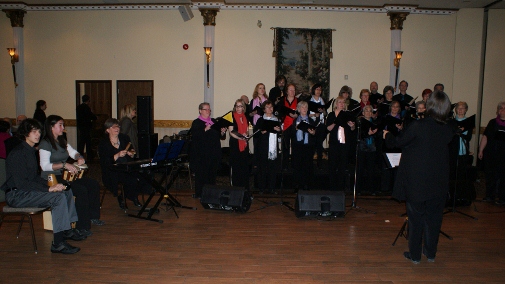






























Que hermosa fué esa gala, mas hermoso aún el sentido de la misma.Lástima no haber podido estar presente, desde acá las acompañé, y hoy disfruto estas fotos
Realmente leyendo y recordando el poco tiempo que pase con Uds. me emocioné muchísimo y desee poder volver allá para compartir ese esfuerzo amoroso y enriquesedor que me enseñaron a buscar donde menos uno piensa encontrarlo
UN ABRAZO PARA TO@s ANA